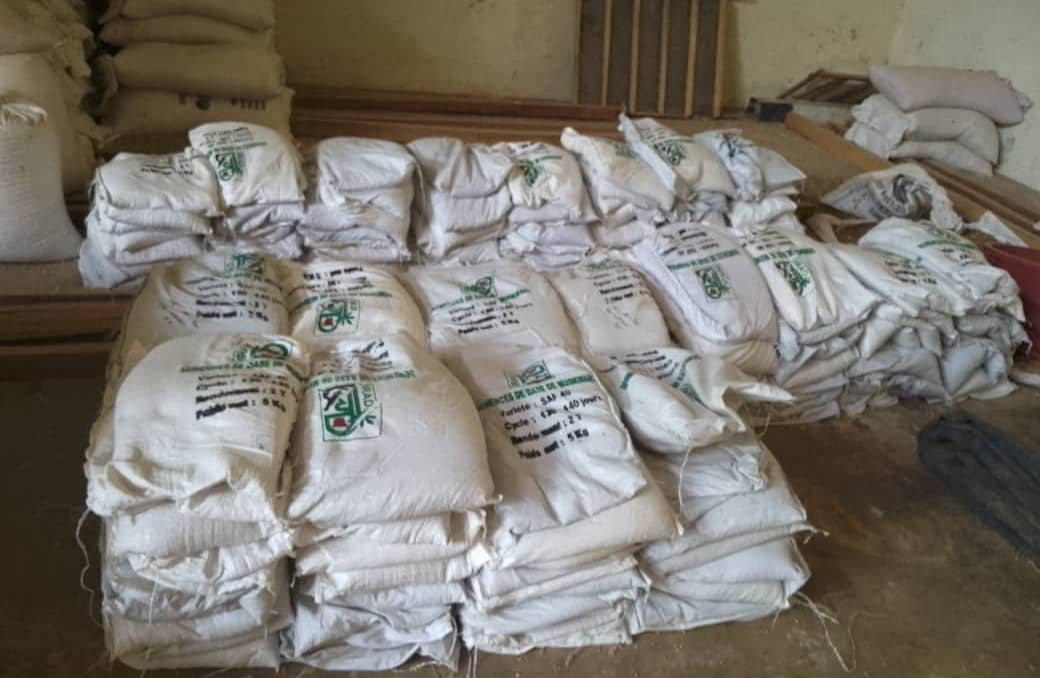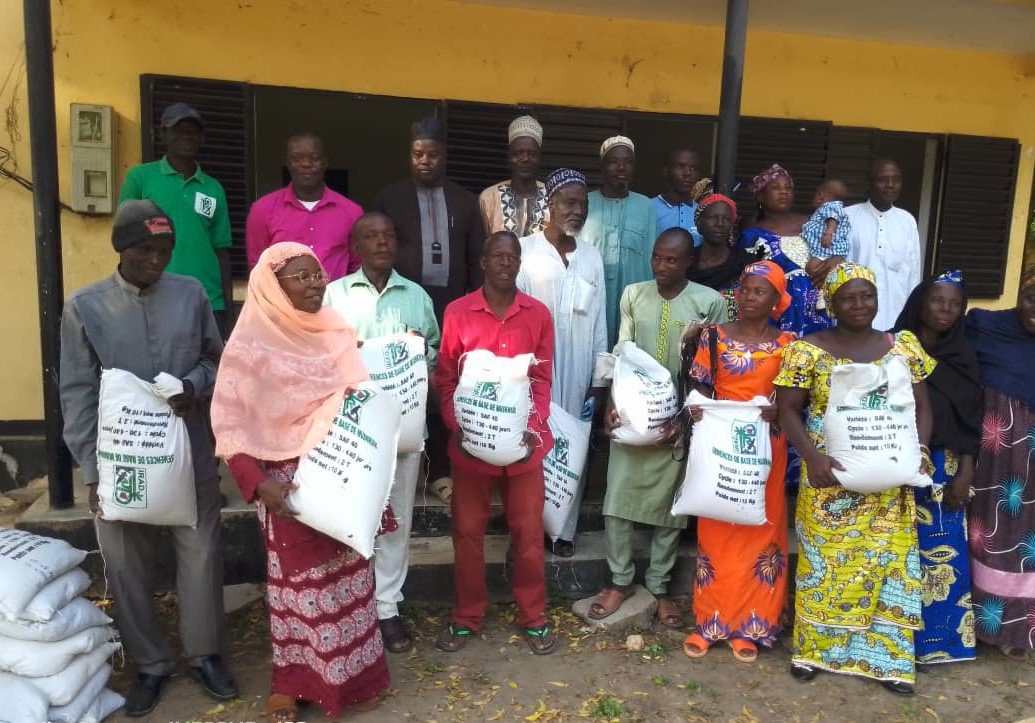
Producers of off-season sorghum, commonly known as Mouskwari, in the subdivisions of Bibemi, Pitoa, Figuil and Guider, in the North region, can boost production for the 2024 crop season. In fact, the Institute of Agricultural Research for Development (IRAD), headed by Dr Noé WOIN, has provided them with more than 03 tonnes (3 000 kg) of improved foundation seeds of off-season sorghum, which can sow around 654 hectares and produce more than 1.300 tonnes.
More than 200 producers gathered in the CIGs and cooperatives received this agricultural manna free of charge from the public authorities. The improved seeds will certainly increase sorghum yields and improve the living conditions of these farmers. "Without foundation seed, we are nothing. Before, we could harvest 6 to 7 tonnes per hectare. Now, it is impossible to even have 02 tonnes,” regrets Mr. AMINOU. "We are delighted for this gift of IRAD. I am sure that this will improve our production and therefore our living conditions”, rejoices M. DJOUNTCHOUKBE.

According to IRAD officials, this gesture by the government through the Institute of Nkolbisson aims to guarantee food security for vulnerable populations in this part of the country, which had been hard hit by climatic hazards. « There have been pockets of drought and floods. Faced with this alarming situation, the IRAD Director General decided to organize a seed distribution campaign to meet the forecasts of the season,” explains Paul SOUNOU, researcher at the IRAD Station in Garoua. Farmers were asked to use these seeds to produce good yields and fight hunger and poverty.
The distribution of these foundation seeds of sorghum, which are of very high genetic quality, will allow farmers to increase their yields and obtain more abundant harvests.

As sorghum is an essential cereal for the daily food of the people in these regions of the country. This government initiative helps to strengthen food security by increasing local production. According to IRAD researchers, foundation seeds are developed to resist disease and difficult climatic conditions, with a high yield potential per hectare. Clearly, This distribution of Mouskwari seeds will therefore help these farmers cope with the current adverse effects of climate change.
The Communication Unit
